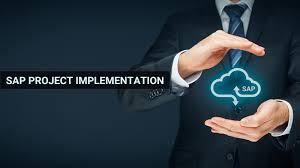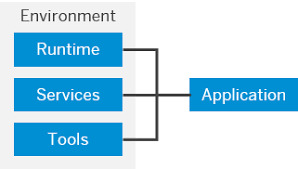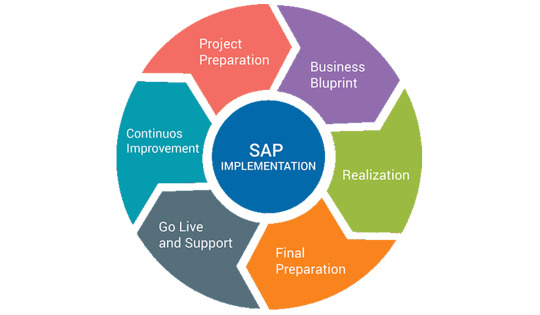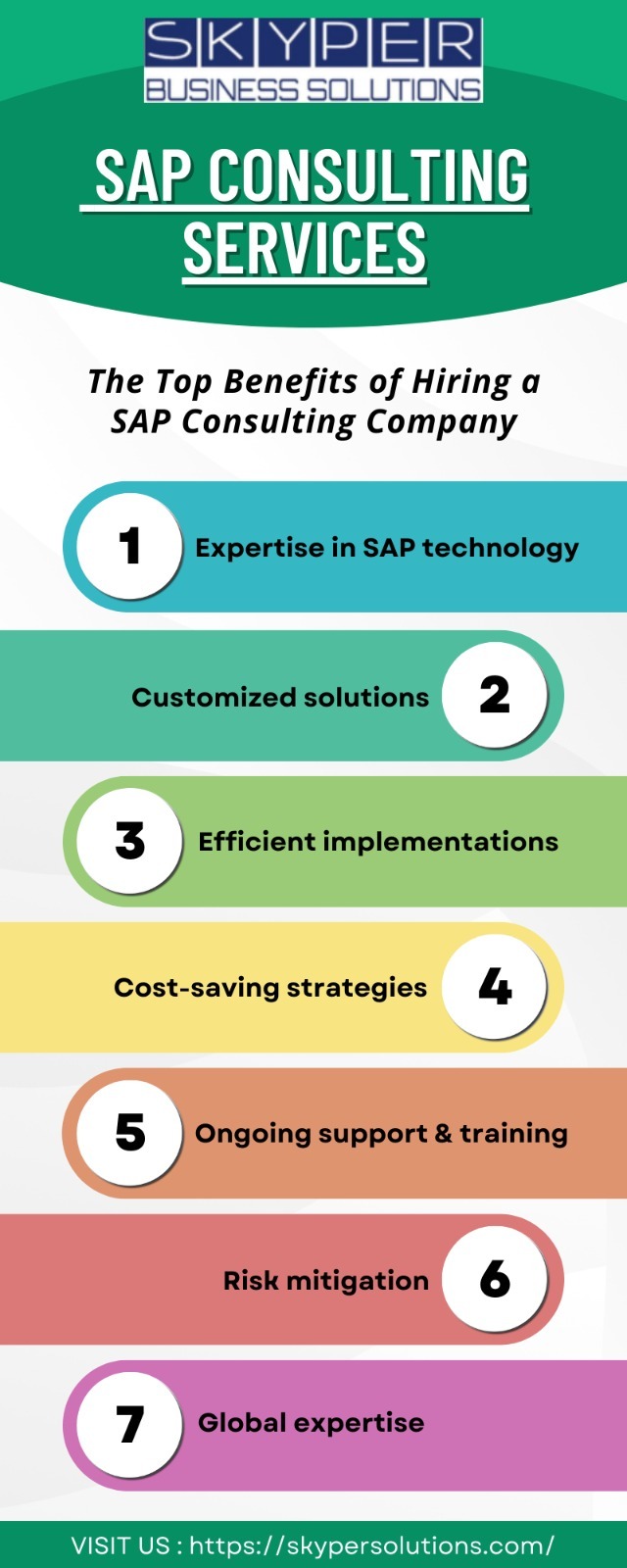Don't wanna be here? Send us removal request.
Text
Would you be able to find the BEST sap implementation service providers? You can look no further than Skyper Solution for comprehensive and customized solutions. visit us : https://skypersolutions.com/pages/sap-implementation/
1 note
·
View note
Text
Looking for the BEST sap implementation service providers? Look no further than Skyper Solution for comprehensive and customized solutions.
1 note
·
View note
Text
Streamline your business operations with reliable SAP implementation services. Find experienced providers to drive growth and success. visit us:
1 note
·
View note
Text
Streamline your business operations with reliable SAP implementation services. Find experienced providers to drive growth and success.
1 note
·
View note
Text
sap implementation service
Navigating Success: The Comprehensive Guide to SAP Implementation Services
Introduction
In the ever-evolving landscape of business technology, staying ahead requires strategic investments that empower growth, efficiency, and innovation. One such pivotal investment is the implementation of SAP (Systems, Applications, and Products) solutions. SAP, a global leader in enterprise software, offers a suite of tools designed to streamline business processes and enhance overall performance. In this comprehensive guide, we'll delve into the world of SAP implementation services, exploring the benefits, challenges, and best practices to ensure a smooth transition and a successful integration into your organization.

Understanding SAP Implementation
SAP implementation is a complex process that involves deploying SAP software to fulfill specific business requirements. Whether you're looking to optimize your financial processes, enhance supply chain management, or improve customer relationship management, SAP provides a range of solutions tailored to meet diverse needs. The implementation process typically includes stages such as project preparation, business blueprinting, realization, final preparation, and go-live and support.
The Benefits of SAP Implementation Services
Streamlined Operations: One of the primary advantages of SAP implementation is the streamlining of business operations. SAP solutions integrate various departments, fostering real-time communication and data sharing. This not only reduces manual efforts but also minimizes the risk of errors and discrepancies.
Enhanced Decision-Making: With SAP's robust analytics and reporting capabilities, organizations gain access to valuable insights. This data-driven approach empowers decision-makers with accurate and timely information, enabling them to make informed choices that drive the business forward.

Improved Customer Experience: SAP's customer relationship management (CRM) tools enable businesses to provide a seamless and personalized experience to their customers. From order processing to after-sales support, SAP solutions help organizations build and maintain strong customer relationships.
Scalability: As businesses grow, scalability becomes a crucial factor. SAP solutions are designed to scale alongside your organization, ensuring that the software can adapt to changing requirements and accommodate increased workloads.
Challenges in SAP Implementation
While the benefits of SAP implementation are immense, it's essential to acknowledge the potential challenges associated with this process.
Complexity: SAP implementation is inherently complex, involving multiple modules and intricate customization. Without proper planning and expertise, organizations may find themselves overwhelmed by the intricacies of the software.
Resistance to Change: Employees accustomed to existing processes may resist the changes introduced by SAP implementation. Effective change management strategies are crucial to ensure a smooth transition and foster a positive attitude towards the new system.
Budget and Time Constraints: Implementing SAP can be a resource-intensive endeavor. Organizations must carefully manage budgets and timelines to prevent cost overruns and delays, which can impact the overall success of the project.
Best Practices for Successful SAP Implementation
Thorough Planning and Assessment: Before embarking on an SAP implementation journey, conduct a thorough assessment of your organization's needs and objectives. Develop a comprehensive plan that outlines the scope, goals, and timelines of the project.
Engage Stakeholders: Involving key stakeholders from various departments early in the process is crucial. Their input is invaluable for ensuring that the implemented SAP solution aligns with the specific needs of different business units.
Invest in Training: To mitigate resistance to change, invest in comprehensive training programs for employees. Providing them with the skills and knowledge to navigate the new system fosters confidence and a smoother transition.
Data Migration Strategy: A robust data migration strategy is essential to ensure the seamless transfer of data from existing systems to SAP. This includes cleaning and validating data to prevent errors and inconsistencies.
Continuous Communication: Maintain open and transparent communication throughout the implementation process. Regular updates, feedback sessions, and addressing concerns promptly contribute to a positive overall experience for employees.
Post-Implementation Support: The support phase is critical for addressing any issues that may arise after the system goes live. Having a dedicated support team and a well-defined post-implementation plan ensures that any challenges are addressed promptly, minimizing disruptions to business operations.
Conclusion
In conclusion, SAP implementation services offer a transformative opportunity for organizations looking to optimize their processes, enhance decision-making, and stay competitive in today's dynamic business environment. While challenges may arise, careful planning, stakeholder engagement, and adherence to best practices can pave the way for a successful SAP implementation.

As technology continues to evolve, embracing0 SAP solutions becomes not just a choice but a strategic imperative for businesses aiming to thrive in the digital era. By leveraging the power of SAP and adopting a holistic approach to implementation, organizations can position themselves for sustained growth, increased efficiency, and long-term success.
1 note
·
View note
Text
1 note
·
View note
Text
1 note
·
View note
Text
https://justpaste.it/3vth1

0 notes
Text
0 notes
Text
sap consulting services
Maximizing Business Potential: The Impact of SAP Consulting Services
Introduction:
In the dynamic realm of business technology, staying at the forefront is not just an advantage but a prerequisite for sustained growth. SAP consulting services have emerged as a pivotal force in aiding organizations to navigate the intricacies of enterprise resource planning (ERP) and optimize business processes. This blog delves into the diverse advantages of SAP consulting services, shedding light on how they empower businesses to streamline operations, enhance efficiency, and unlock their full potential.

Understanding SAP Consulting:
SAP, or Systems, Applications, and Products, stands as a powerhouse in the ERP domain, providing holistic solutions for managing various business processes. Encompassing an array of offerings, SAP consulting services range from system implementation and customization to continuous support and optimization. These services are designed to align SAP solutions with the distinct needs and objectives of each business, ensuring a seamless integration that maximizes the technology's value.
Customized Implementations for Seamless Integration:
Success in any SAP implementation lies in aligning it with the specific requirements of the organization. SAP consulting services commence with a meticulous analysis of the client's business processes, identifying areas for improvement and customization. This tailored approach ensures the seamless integration of the SAP system with existing workflows, minimizing disruptions and maximizing user adoption. Be it SAP S/4HANA, SAP Business Suite, or any other SAP solution, the consulting team tailors the implementation to the organization's unique structure and objectives.
Strategic Planning for Long-Term Success:
Beyond the initial implementation, SAP consulting services extend into strategic planning for long-term success. Consultants collaborate with businesses to develop a roadmap for the ongoing evolution of their SAP environment. This involves anticipating future needs, incorporating emerging technologies, and ensuring scalability.

By taking a proactive and strategic approach, SAP consulting services become a valuable partner in the organization's growth journey, fostering adaptability and resilience in the face of technological advancements and market changes.
Optimizing Business Processes for Efficiency:
A primary goal of SAP consulting is to optimize business processes, enhancing efficiency and reducing operational costs. Consultants conduct in-depth analyses of existing workflows, identifying bottlenecks, redundancies, and areas for improvement. Through the implementation of best practices and customized configurations, SAP consulting services reengineer business processes to align with industry standards and maximize efficiency. This not only leads to cost savings but also positions the organization for agility in a rapidly changing business landscape.
User Training and Adoption Strategies:
The effectiveness of SAP solutions is closely tied to user adoption. SAP consulting services recognize this and prioritize comprehensive user training programs. From basic navigation to advanced functionalities, users are equipped with the knowledge and skills needed to leverage the full potential of SAP systems. Additionally, consultants work on developing user adoption strategies, ensuring that the transition to the new system is smooth and met with enthusiasm rather than resistance. This holistic approach to implementation goes beyond the technical aspects, addressing the human element crucial for successful ERP integration.
Continuous Support and Upgrades:
The technology landscape is dynamic, with new features, updates, and security patches being released regularly. SAP consulting services encompass continuous support and proactive monitoring to address issues promptly and ensure system stability. Consultants also play a crucial role in guiding organizations through SAP upgrades, leveraging new features and functionalities to keep the system in line with industry best practices. This ongoing partnership provides a safety net for businesses, allowing them to focus on their core operations while knowing that their SAP environment is in expert hands.
Data Security and Compliance Assurance:
With the increasing emphasis on data security and regulatory compliance, SAP consulting services include robust measures to safeguard sensitive information. Consultants work with organizations to implement security protocols, access controls, and data encryption to protect against internal and external threats. Moreover, they ensure that the SAP system aligns with industry regulations and standards, mitigating the risk of non-compliance. This focus on data security not only protects the organization's reputation but also instills confidence among customers and partners.
Conclusion:
In conclusion, SAP consulting services play a pivotal role in unlocking the full potential of businesses through customized implementations, strategic planning, process optimization, and ongoing support. As organizations navigate the complexities of the modern business landscape, the expertise and guidance provided by SAP consultants become invaluable. By embracing SAP solutions with a customized and strategic approach, businesses can position themselves for long-term success, achieving operational excellence, and staying ahead in an ever-evolving digital era.
#sap consulting services#best sap implementation#sap implementation#sap implementation service providers
1 note
·
View note
Text
1 note
·
View note
Text
0 notes
Text
sap implementation
Mastering SAP Implementation: Strategies, Tips, and Best Practices for Success
Implementing SAP (Systems, Applications, and Products) within an organization is a complex yet transformative process. When executed effectively, it can streamline operations, enhance productivity, and drive business growth. However, without a clear strategy and adherence to best practices, SAP implementation can present challenges and hinder its potential benefits. This article delves into essential strategies, invaluable tips, and best practices to master the process of SAP implementation for optimal success.

Understanding SAP Implementation
What is SAP Implementation?
SAP implementation is the process of integrating SAP software into an organization's existing infrastructure. It involves various stages, including planning, configuration, testing, deployment, and ongoing support. The goal is to enable efficient business processes and data management across different functions and departments.
Key Components of SAP Implementation
Planning Phase: Initiating the project, defining objectives, setting timelines, and assembling a dedicated team.
Configuration: Tailoring SAP software to meet the specific needs of the organization.
Testing: Thoroughly evaluating the system to ensure functionality and reliability.

Deployment: Rolling out the SAP system across the organization.
Support and Maintenance: Providing ongoing support, updates, and maintenance post-implementation.
Strategies for Successful SAP Implementation
1. Thorough Planning
Before implementation, define clear objectives and scope. Engage stakeholders, understand business requirements, and create a detailed roadmap. Establish realistic timelines and budgets to avoid unexpected hurdles.
2. Expert Team Assembly
Form a competent team comprising internal experts and external consultants. Their combined expertise ensures a holistic approach to implementation, covering technical, operational, and strategic aspects.
3. Effective Change Management
Prepare the workforce for change. Communicate the benefits, offer training, and address concerns to facilitate a smooth transition. Employee buy-in is crucial for successful adoption.
4. Customization and Configuration
Tailor SAP software to fit the organization's unique needs. Customize the system to streamline processes and align with existing workflows.
5. Comprehensive Testing
Thoroughly test the system before deployment. Identify and rectify any issues to ensure a smooth transition and avoid disruptions in operations.
Tips for a Seamless SAP Implementation
1. Prioritize Data Migration
Accurate data migration is critical for SAP implementation. Clean, accurate data facilitates smooth operation and reporting within the new system.
2. Continuous Training and Support
Offer continuous training programs for employees at all levels. Ongoing support and guidance post-implementation help in maximizing the system's potential.
3. Risk Management
Identify potential risks and develop mitigation strategies. Anticipating and addressing issues in advance can prevent setbacks during implementation.
4. Regular Updates and Maintenance
Regular updates and maintenance ensure the system is up-to-date and functions optimally, addressing any emerging needs or issues.
5. Post-Implementation Evaluation
Conduct a comprehensive evaluation post-implementation to assess performance against set objectives. Use feedback to improve future processes.
Best Practices for SAP Implementation Success
1. Strong Leadership and Commitment
Effective leadership commitment and support are crucial for successful implementation. It sets the tone for the entire organization to embrace the change.
2. Clear Communication
Maintain transparent and consistent communication throughout the process. Address concerns, share progress, and celebrate milestones to keep everyone aligned.
3. Flexibility and Adaptability
Remain flexible during the implementation process. Adapt to unforeseen challenges by adjusting strategies while keeping the end goals in mind.
4. Documenting and Reporting
Document every phase and keep comprehensive records. Accurate documentation aids in troubleshooting and understanding the system's history.
5. Continuous Improvement
Encourage a culture of continuous improvement. Gather feedback, learn from experiences, and implement changes to enhance system performance continuously.
Conclusion
Mastering SAP implementation demands a comprehensive understanding of the process, a strategic approach, and a commitment to best practices. Success lies in meticulous planning, effective execution, and continuous improvement. By following the strategies, tips, and best practices outlined in this article, organizations can significantly increase the chances of a successful SAP implementation, unlocking its full potential and reaping its benefits in the long run.
1 note
·
View note
Text
https://justpaste.it/cb80a
1 note
·
View note
Text
Streamline your business operations with reliable SAP implementation services. Find experienced providers to drive growth and success.
1 note
·
View note
Text
sap consulting services
"Maximize Your Potential: Elevate Your Business with SAP Consulting Services"
In today's competitive business landscape, it's crucial to adopt the right technologies and strategies to stay ahead of the curve. SAP (Systems, Applications, and Products) has become a game-changer for many companies looking to streamline their operations and improve their overall efficiency. However, implementing SAP solutions can be complex, which is why SAP consulting services have become invaluable. In this comprehensive guide, we'll explore what SAP consulting services are, why they are essential, and how they can help your business thrive.
Table of Contents
Understanding SAP Consulting Services
Why SAP Consulting Services Matter
The Benefits of SAP Consulting Services
Types of SAP Consulting Services
Choosing the Right SAP Consulting Partner
The SAP Implementation Process
Measuring Success: Key Performance Indicators (KPIs)
Future Trends in SAP Consulting Services
Conclusion
1. Understanding SAP Consulting Services
SAP consulting services refer to the assistance provided by experts to help businesses implement SAP software solutions. SAP is a multinational software corporation that specializes in enterprise software to manage business operations and customer relations. SAP solutions cover a wide range of business functions, including finance, human resources, supply chain, and more. Consulting services come into play when businesses decide to adopt these SAP solutions, as the implementation process can be complex and challenging.

2. Why SAP Consulting Services Matter
Implementing SAP solutions without professional guidance can lead to a host of issues. These issues include:
Complexity: SAP solutions are intricate and highly customizable, which makes implementation a challenging task for businesses unfamiliar with the software.
Inefficiency: Without expert guidance, businesses may not fully optimize their use of SAP solutions, resulting in inefficiencies and wasted resources.
Cost Overruns: Poorly managed implementations can lead to budget overruns, which can be detrimental to a company's financial health.
Data Loss: Incorrect data migration or integration can lead to data loss, compromising the integrity of a business's information.
Downtime: Inefficient implementations can result in operational downtime, causing disruptions to daily business activities.
SAP consulting services are crucial because they help mitigate these risks and ensure that your SAP implementation is smooth and efficient.
3. The Benefits of SAP Consulting Services
The advantages of employing SAP consulting services are manifold:
Expert Guidance: SAP consultants are experienced professionals who understand the ins and outs of SAP solutions. They can provide expert guidance tailored to your business's specific needs.
Customization: SAP consulting services help tailor the software to your unique business processes and requirements, ensuring maximum efficiency.
Cost-Efficiency: While there is a cost associated with consulting services, it is often outweighed by the savings from efficient SAP implementation and the avoidance of costly mistakes.
Reduced Downtime: Consultants work to minimize operational disruptions during the implementation process, ensuring a seamless transition.
Data Security: SAP consultants prioritize data security, preventing data loss or breaches during the implementation process.
4. Types of SAP Consulting Services
There are various types of SAP consulting services, each serving specific needs:
SAP Implementation Services: These services focus on installing, configuring, and customizing SAP solutions to fit your business needs. This is the most common type of SAP consulting.
SAP Upgrade Services: If your business is already using SAP software and needs to update to a newer version or apply patches, upgrade services are essential.
SAP Integration Services: These services ensure that SAP solutions seamlessly integrate with your existing systems, minimizing disruption and data loss.

SAP Support and Maintenance Services: Post-implementation, ongoing support and maintenance services keep your SAP software running smoothly and efficiently.
SAP Training and Change Management Services: These services help your employees adapt to the new SAP system, ensuring a smooth transition and effective usage.
5. Choosing the Right SAP Consulting Partner
Selecting the right consulting partner is crucial for a successful SAP implementation. Consider the following factors when making your choice:
Experience: Look for consultants with a proven track record of successful SAP implementations in your industry.
Expertise: Ensure that the consultants have expertise in the specific SAP solutions that align with your business needs.
References: Ask for references from previous clients to gauge the consultant's reputation and competence.
Customization: Choose a partner who understands your business's unique requirements and can customize SAP solutions accordingly.
Communication: Effective communication is vital for a successful partnership. Ensure that you can communicate openly and frequently with your chosen consultants.
6. The SAP Implementation Process
The SAP implementation process typically follows a series of steps:
Project Planning: The project begins with thorough planning, including defining goals, timelines, and budgets.
Analysis: Consultants analyze your existing systems and processes to identify areas for improvement and customization.
Configuration: SAP solutions are configured to meet your specific business needs.
Data Migration: Existing data is migrated into the SAP system, ensuring data integrity.
Testing: Rigorous testing ensures that the system operates correctly and meets your requirements.
Training: Employees receive training to use the SAP system effectively.
Go-Live: The SAP system is officially launched for everyday use.
Ongoing Support: Consultants provide post-implementation support to address issues and optimize the system.
7. Measuring Success: Key Performance Indicators (KPIs)
To evaluate the success of your SAP implementation, it's essential to establish Key Performance Indicators (KPIs) that align with your business goals. Common KPIs include:
Efficiency Improvements: Measuring the time saved and increased productivity resulting from SAP implementation.
Cost Reduction: Tracking the reduction in operational costs and improvements in cost management.
Customer Satisfaction: Assessing how well SAP solutions enhance customer relations and satisfaction.
Data Accuracy: Monitoring data accuracy and the reduction of data errors.
Profitability: Evaluating the impact of SAP implementation on overall profitability.
8. Future Trends in SAP Consulting Services
As technology evolves, SAP consulting services continue to adapt. Some emerging trends include:
Cloud Integration: The migration to cloud-based SAP solutions is becoming more prevalent, offering greater flexibility and scalability.
AI and Machine Learning: The incorporation of artificial intelligence and machine learning into SAP solutions for predictive analytics and automation.
Cybersecurity: A growing focus on cybersecurity in SAP consulting services to protect data and systems.
IoT Integration: Integrating the Internet of Things (IoT) with SAP for improved data collection and analysis.
Sustainability: SAP solutions are increasingly designed with sustainability in mind, helping businesses reduce their environmental footprint.
9. Conclusion
SAP consulting services are indispensable for businesses looking to leverage SAP software solutions to improve their operations and stay competitive. By partnering with experienced consultants, you can ensure a smooth implementation, customization, and ongoing support for your SAP systems. Remember to choose your consulting partner wisely, set clear KPIs to measure success, and stay attuned to emerging trends in the world of SAP consulting. With the right guidance and support, your business can elevate its efficiency, profitability,
1 note
·
View note
Text

Streamline your business operations with reliable SAP implementation services. Find experienced providers to drive growth and success. VISIT US :
0 notes